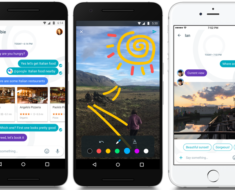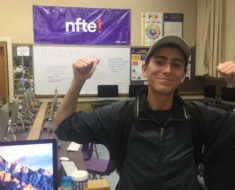Halloween may be over, but that’s no reason for readers to abandon books from the horror genre. From Mary Shelley to H.P. Lovecraft, scary stories have been a source of both entertainment and a conversation starter for deeper questions about humanity’s place in the universe. While older stories generally deal with monsters and murders, more recent works often take a science fiction bent and incorporate human fears of machines, particularly the potential threat of artificial intelligence. A recent program from MIT straddles that line, with some interesting and bone-chilling results.
People generally think of art and creativity as essentially human domains. This is especially true for fiction writing, as A.I. programs often fail to accurately replicate the nuance of the human language, which is essential for effective writing. However, as artificial intelligence software increases in sophistication, there may come a day when literary masterpieces are produced entirely by computers without input from authors. Just in time for Halloween, researchers at MIT released a deep learning A.I. program that, while it won’t be writing full novels anytime soon, shows the potential for computers to participate in producing creative works.
Called “Shelley” in honor of the famed author of Frankenstein, the project is the culmination of work by a team of researches at the Massachusetts Institute of Technology (MIT). Interaction between users and the A.I. took place via Twitter, where the program would tweet out its own introduction to a fresh horror story each hour, with users providing the next part of the tale. The A.I would in turn provide a follow-up segment, and the back-and-forth between Twitter users and Shelley would create a collaborative horror tale.
The A.I. was “taught” by exposing it to a collection of 140,000 tales of terror from /r/nosleep, a horror-themed community on Reddit. Since its release, Shelley has helped to create over 100 stories in collaboration with users, and many of them are surprisingly readable. With titles like Magical White Shadow and Breath On My Neck, they certainly fit right alongside purely human-composed scary stories found online. While the project had some interesting results, researchers assured authors that the prospect of A.I. entering the realm of writing in any true capacity is a long way off. That said, there is something both chilling and enticing about reading a story produced by interactions between a real human and a lifeless piece of software, adding an extra layer of horror to Shelley’s collaborative tales.
Dil Bole Oberoi





